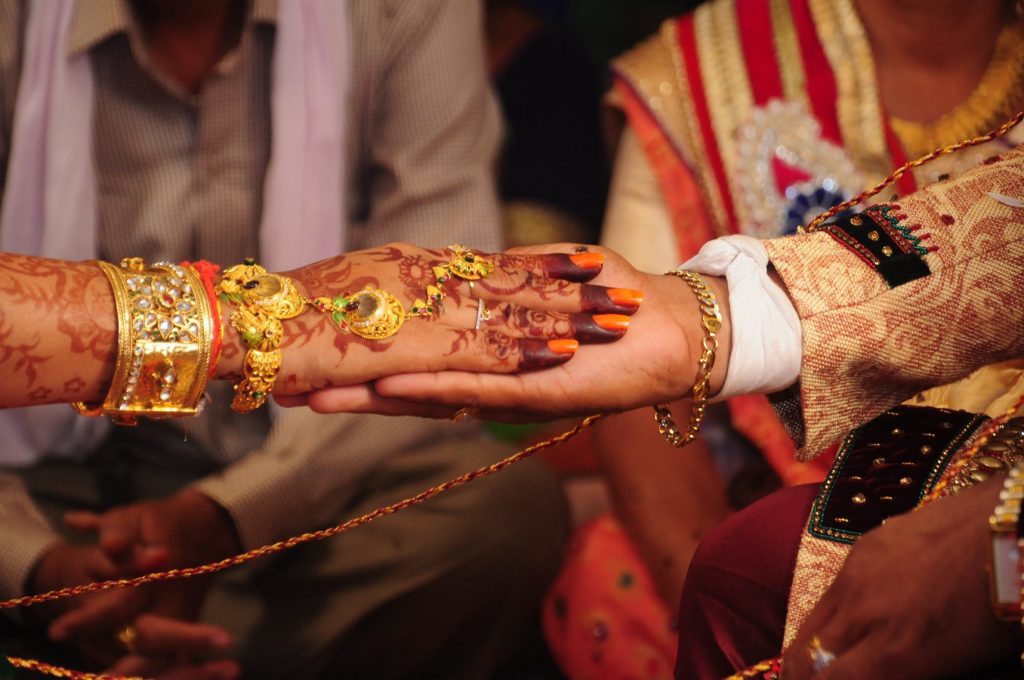
A court wedding, also called a civil wedding, can be described as a legally binding and official union between two people in front of a registry officer or judge. Court marriage is becoming more popular in India because of its simplicity, affordability, and ease of registering. This blog will review the steps needed to register for a marriage ceremony in India. This is a very pertinent question that the target audience has asked. According to the particular marriage act, experts from the legal field agree that court marriages happen in India. But, what is a special marriage act, for that matter of fact? Experts from the legal field acknowledge that the special marriage act was formulated in 1954. However, the special marriage act is known to be uniform on a mass scale and is understood to be a common aspect for all the citizens of India. However, the target audience must know that a court marriage can be easily performed without any particular discrimination factor. Such a marriage is also known as a registered marriage. Registered marriage can happen at any point in time under the supervision of legal authorities. However, registered marriage rules remain uniform, although marriage rituals can vary from one society to another. This blog talks about the Court Marriage Registration Procedure.
Who Is Eligible for a Court Marriage or Registered Marriage?
People from two different religions can be eligible for a court marriage. However, it is important to note that a court marriage can happen and is generally performed without discriminatory factors. Therefore, it is clear that a court marriage between two different parties can happen irrespective of creed, caste, or color.
A court marriage precisely means a legal bind is created between two independent citizens of marriageable age. Therefore, it is a solemnization of the process related to marriage in support of the law. Consequently, it is essential to note that a court marriage can happen between two partners from different castes. However, a court marriage can still happen if both spouses belong to other religions. At the same time, legal experts suggest that a court marriage needs to be directly applied for; in this case, a marriage registrar can only produce the marriage registration certificate.
What is the Eligibility?
Before proceeding with the court marriage registration process, the couple must meet the eligibility criteria. The eligibility criteria for court marriage are:
- The bride and groom must be at least 18 years old.
- The bride and groom must be mentally and physically fit for marriage.
- The bride and groom must not be related to each other within the prohibited degrees of relationship.
- The bride and groom must not be married to any other person.
Document Required?
Once the couple has confirmed their eligibility, they must prepare the necessary court marriage registration documents. The documents required for court marriage are:
- Age proof (birth certificate, school leaving certificate, passport, etc.)
- Address proof (Aadhaar card, voter ID card, passport, etc.)
- Passport-size photographs of both the bride and groom.
- Affidavit stating the date of birth, marital status, and nationality of both the bride and groom.
- Two witnesses with their identity proofs and passport-size photographs.
- It is important to note that the documents must be in the correct format and should be self-attested.
Notice of Intended Marriage.
The next step is to give notice of intended marriage to the marriage registrar of the district where either the bride or groom has been residing for at least 30 days before the date of the notice. The notice must be in writing and signed by both the bride and groom and their witnesses. The notice of intended marriage must include the following details:
- Name, age, and address of the bride and groom.
- Date of birth of the bride and groom.
- Nationality and religion of the bride and groom.
- Name and address of the two witnesses.
- Date of the intended marriage.
After receiving the notice, the marriage registrar will publish it on the office’s notice board for 30 days. If no objections are raised during this period, the marriage registrar will issue a marriage certificate.
Marriage Ceremony.
After the completion of the notice period, the bride and groom need to appear before the marriage registrar along with their witnesses on the date and time fixed for the marriage ceremony. The marriage ceremony will be conducted in the presence of the marriage registrar and the witnesses. The bride and groom will exchange vows and sign the marriage register in the presence of the marriage registrar and the witnesses. The marriage certificate will be issued after the completion of the ceremony.
Registration of Marriage Certificate.
The final step is to register the marriage certificate. The marriage certificate is an important legal document that proves the validity of the marriage. The marriage certificate can be registered at the sub-registrar’s office or the marriage registrar within whose jurisdiction the marriage was solemnized. The following documents are required for registration of the marriage certificate:
- Original marriage certificate
- Age proof and address proof of both the bride and groom
- Passport-size photographs of both the bride and groom
- Witness proof (identity and address proof of the witnesses)
The registration of the marriage certificate is important as it provides legal recognition of the marriage and helps to avail of various benefits such as joint bank accounts, property rights, and inheritance rights.
Marriage Registration in Thane
Marriage Registration in Malabarhills
Marriage Registration in Cuffeparade
Marriage Registration in Juhu
Marriage Registration in Tardeo
Marriage Registration in Bandra West
Marriage Registration in Worli
Marriage Registration in Dadar
Marriage Registration in Byculla
Marriage Registration in Santacruz
Marriage Registration in Mahim
Marriage Registration in Vasai
Marriage Registration in Bandra East
Marriage Registration in Raigad
Marriage Registration in Andheri East
Marriage Registration in Ghatkopar
Marriage Registration in Bhandup
Marriage Registration in Mumbai Central
Marriage Registration in Kurla
Marriage Registration in Churchgate
Marriage Registration in lalbaugh
Marriage Registration in Navy Nagar
Marriage Registration in Dharavi
Marriage Registration in Nariman Point
Marriage Registration in Kalbadevi
Marriage Registration in Grant Road
Marriage Registration in Malad
Marriage Registration in Borivali
Marriage Registration in Dombivli
Marriage Registration in Palghar
Court Marriage Registration in Pune
Best Family Lawyer in Mumbai
Court Marriage Registration in Mumbai
Court Marriage Registratio in Thane
Court Marriage Registratioc in Pune
Court Marriage Registratio in Mumbai
Court Marriage Registratio in Nashik
Legal Service Provider in Mumbai, Thane, Pune
Marriage Registration in Mumbai
Court Marriage Registration in Mumbai



